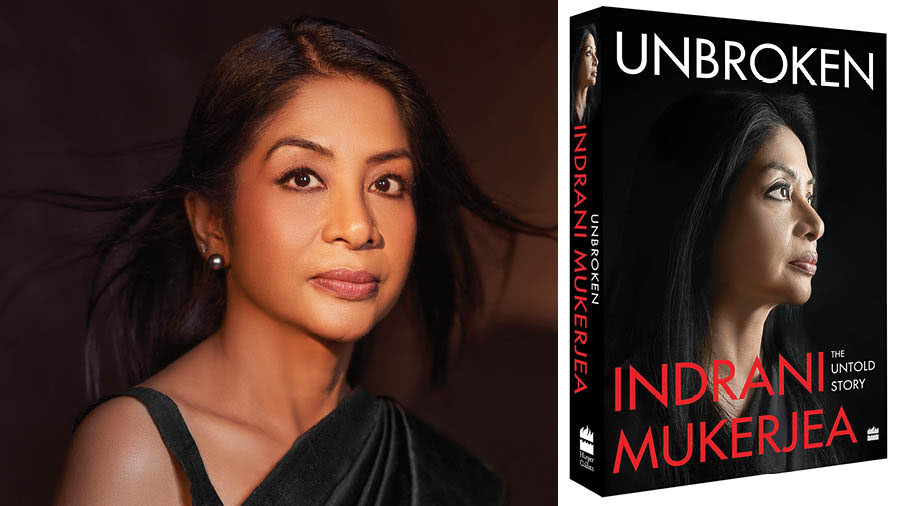
It’s not a crime to be ambitious, successful and beautiful: Indrani Mukerjea
Don't Miss
After six-and-a-half years in prison, Indrani’s explosive memoir, ‘Unbroken’, tells the story behind an incredible life
PRIYAM MARIK | TT | 24.08.23 : Indrani Mukerjea has been accused of murdering her own daughter. She has also been accused of ambition. Tried by the courts and the media, she has recently come out with the “one and only truth of my story” in her debut book and memoir, Unbroken. Published by HarperCollins, Unbroken is a riveting read, irrespective of one’s opinion of Indrani and her choices.
From being raped as a minor by her father and being forced to carry the consequent child (which is Sheena Bora) to term to being charged of murdering that same child years later, all the while emerging as one of the most high-profile businesswomen of her generation, Indrani has led an incredible life. My Kolkata caught up with Indrani, who is out on bail since May 2022, over a video call connecting Kolkata and Mumbai to get her take on her book, her family, her time in prison, what she feels about Sheena and more. Edited excerpts from the conversation follow.
‘I kept feeling stronger as I wrote the book’
My Kolkata: When did you first decide to write your memoir? How long did the whole process take you?
Indrani Mukerjea: I started writing when the pandemic started. Like most things, the courts had also shut, and I was stuck in prison. I had plenty of time on my hands and wanted to use it more productively. I started it more as a diary, recalling everything that has happened to me since my arrest (in August 2015). As I started writing more and more, I thought it was a good idea to convert it into a book, which could be published once I was released. I always believed that I was going to come out at some point.
Once I started writing, I reached the point where I was ready to tell the whole story to the world. The story of what happened, of the decisions I have taken. It doesn’t matter whether you think they’re right and wrong. I kept feeling stronger as I wrote the book. It was liberating. It felt like I was out of everything.
It took 14 months to write 24 chapters, which is almost 95 per cent of the book. Once I came out, I finished the remaining part.
‘Misogyny is all-pervasive in prison’
Was writing the book therapeutic? Have you finally been able to process everything the last eight years have brought since your arrest?
Absolutely, it’s been therapeutic. I’ve understood myself better through it. Six and a half years in prison have changed me as a person. It’s been a humbling experience. I’ve realised that you’re the only person who can deal with your own problems, and how important it is not to judge people. I’ve also realised what women have to deal with in prison, where misogyny is all-pervasive, no matter what level of society you come from.
‘If Peter ever needs me, I’ll be there for him’
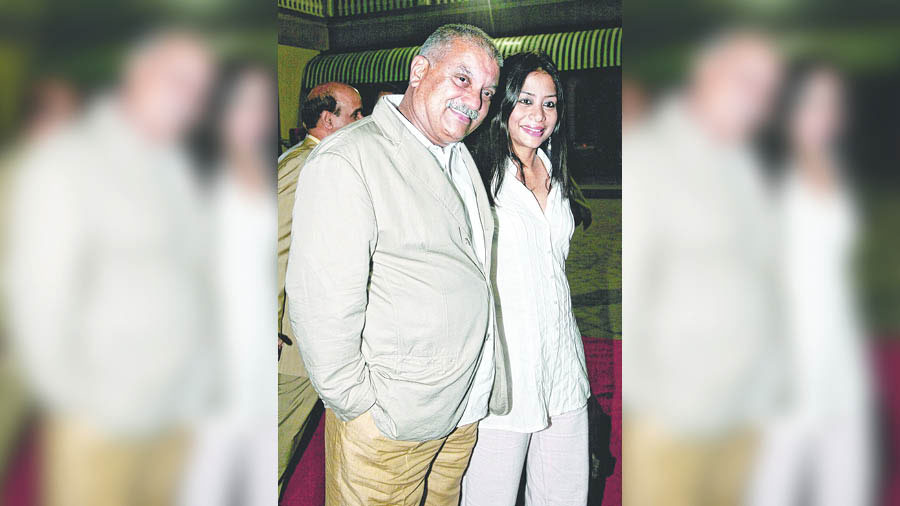 |
| According to Indrani, Peter Mukerjea (left) was a “fair-weather husband”: TT archives |
At the risk of prying, how are your relations with Peter Mukerjea (her ex-husband) and Vidhie Mukerjea (her younger daughter) now?
Vidhie is still the most important person in my life. No matter what the world wishes to believe, I’m still the mother of my three children (Sheena and Mikhail Bora being the other two). My feelings for each one of them, my commitment and my responsibility, won’t ever go missing. I do share a relationship with Vidhie right now, not just a mother-daughter one but also one between two women. She’s blossomed to be a really intelligent woman. She went through a lot of things she didn’t deserve. A lot of senior journalists targeted her simply for living the life of a normal university student.
As for Peter, I’m in contact with him. I keep meeting him in court. I’m very unhappy with him. Not least because he wasn’t totally honest about what he went out and said (after Indrani’s arrest). At the same time, he’s been my husband and I’ve got very good memories of our time together. If he ever needs me, I’ll be there for him. I’ve chosen to move away from him, but you don’t stop caring or loving a person just because of that. While I don’t want to live with a man who’s a fair-weather husband, I’m not a fair-weather friend myself.
Before the murder allegations came up, you were leading a successful professional life. In November 2008, the Wall Street Journal had mentioned you as one of “50 Women to Watch”. What did you most enjoy about your work and what would you consider as your greatest professional success?
I really enjoyed my job as an HR professional. It gave me the opportunity to boost careers, build confidence in young people and help them progress in life. I started it very young, and I’ve placed thousands of people into jobs. As you create bigger businesses, you lose some of that connection with the actual business, because you’re delegating more and more. And it gets lonelier at the top. I’m enjoying being an author, too, because it brings back a lot of the interactions and personal touch that I had earlier.
‘I’ll always have a soft corner for Kolkata… Everyone was very nice to me in Mumbai until I went to prison’
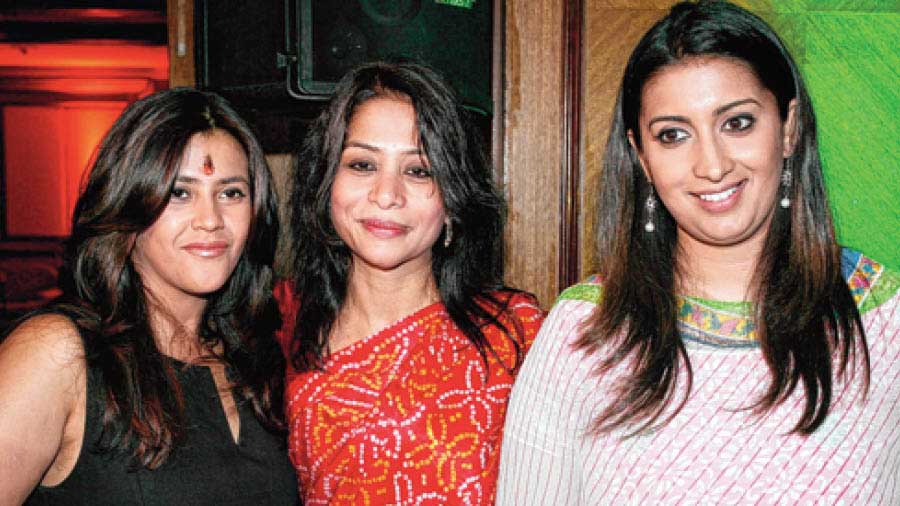 |
| Indrani with Ekta Kapoor and Smriti Irani during her days as a businesswoman in Mumbai: TT archives |
You have worked extensively in Kolkata and Mumbai. How did the two cities treat you professionally and socially?
I’ll always have a soft corner for Kolkata, it’s after all the City of Joy. Mumbai is the City of Dreams. I’ve made a lot of good friends in Kolkata, who’re still my friends. The city allowed me to let myself loose and let my hair down. Mumbai has been interesting. Right after I came to Mumbai, I met Peter. The shift was dramatic. I couldn't always be myself. But Mumbai has given me a lot of opportunities, too. Everyone was very nice to me in Mumbai until I went to prison. Perhaps people in Mumbai have a sense of insecurity about others who make it big, especially if they’re outsiders.
‘Women have to learn to respond rather than react’
One theme that recurs in your book is how Indian society cannot tolerate successful women who are also attractive, that they invariably get slotted into the “witch or b*tch” narrative. What did you do to protect yourself against such societal perceptions over the years?
Honesty, I never felt this directly before I went to prison. People were careful with what they said when I had a voice. When I was behind bars and didn’t have a voice, that’s when they gave an opinion. And that’s okay, they’re entitled to it. But it did hurt me, and I wondered what I’ve done to deserve it.
How I dealt with it eventually, and what I’d advise other women to do, is to simply keep doing what you’re doing and shut the noise around you. Women have to learn to respond rather than react, without fear. I waited for my time and responded. It’s not a crime to be ambitious, successful and beautiful. It’s not a crime to be married more than once or choose to raise your children the way you want to. Nobody can decide whether you’re a good mother or not. As long as you don’t hurt people and you’re a good human being, you should be able to live the way you want to live. You don’t have to please anyone with your choices.
‘In India, a lot of people don’t understand the difference between an undertrial prisoner and a convicted prisoner’
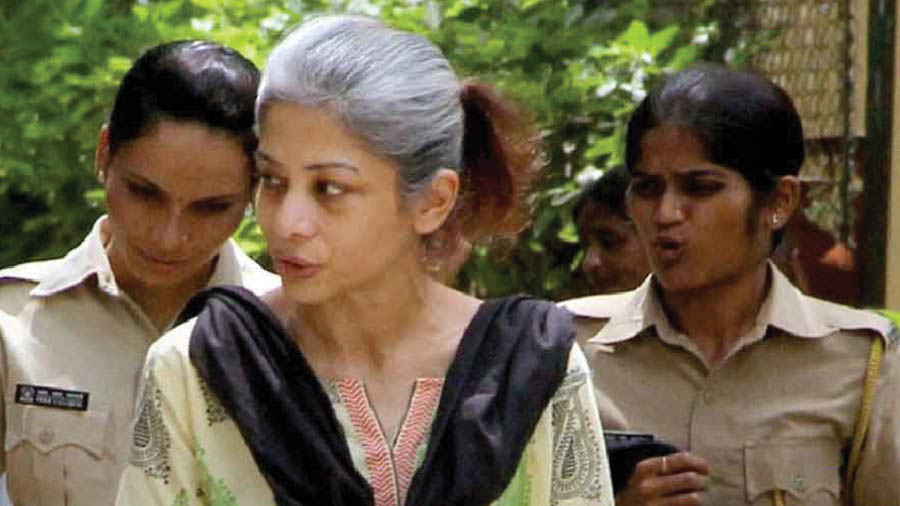 |
| “In the chargesheet, they say it (the crime) is alleged, it’s not something that’s been proven,” reminds Indrani: TT archives |
One of the most hard-hitting sections of the memoir is your time as an undertrial at the Byculla jail in Mumbai. You say that your stint in prison taught you the real meaning of female solidarity and camaraderie. What else would you say were your biggest lessons during a spell where the process of justice seemed to be the biggest punishment? Did you ever lose faith in justice itself?
I was certainly very upset with the justice system. When I started filing bail after bail, it kept getting rejected. Doesn’t the Constitution say that you’re innocent until proven guilty? I wasn’t even a threat to national security. In my case, I also faced a massive media trial, which made things worse. However, when witnesses were deposing and the court started realising that things weren’t adding up, the response of the system was genuine. That’s what restored my faith in the system.
The most important lesson I learnt is the social stigma that a person comes out with after being in jail. In India, a lot of people don’t understand the difference between an undertrial prisoner and a convicted prisoner. Even in the chargesheet, they say it (the crime) is alleged, it’s not something that’s been proven.
‘I can’t rule out the possibility that Sheena may be under some kind of pressure’
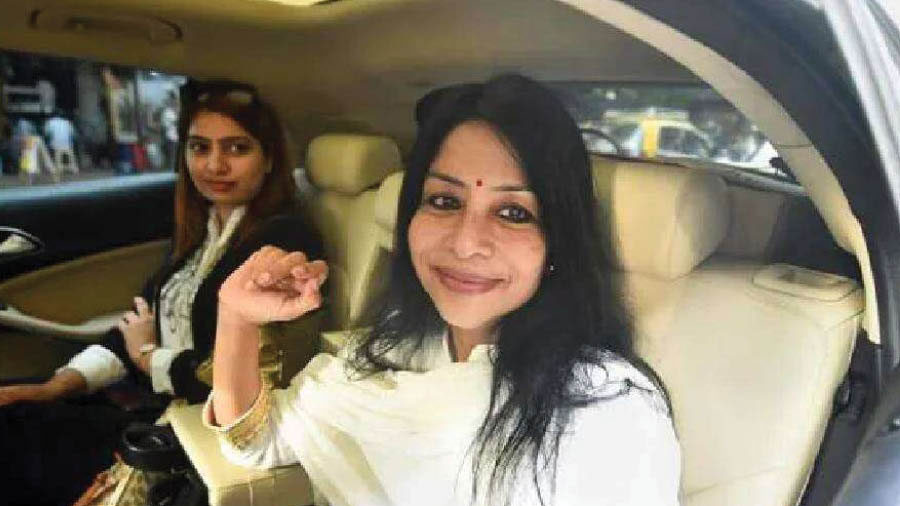 |
| In spite of all the tumult of the past few years, Indrani would welcome back Sheena Bora into her life if the latter is alive and open to reconciliation: TT archives |
In the book, you mention that two people you know have spotted and/or met Sheena Bora after April 24, 2012 (the day she was allegedly murdered by Indrani and two others). If Sheena is indeed alive, why do you think she has not come forward to save you?
I’m still baffled that if Sheena’s out there and safe, and she’s moving around freely, then why hasn’t she come forward? I think about it every single day. I haven’t been able to come up with an answer. I can’t rule out the possibility that she may be under some kind of pressure. There have been very disturbing messages that came on record between Rahul Mukerjea (Sheena’s boyfriend and Peter’s son) and her. Where Sheena says she feels pressured, that she doesn’t want to get married (to Rahul). She says that she has a very good relationship with me and doesn’t want Rahul or Peter to interfere in that relationship. In spite of all this, it’s a big mystery why she hasn’t come forward.
If Sheena is alive and decides to come back to you and reconcile at some point, would you be open to it?
Of course, I’d welcome her back into my life. How could I not, I’m still her mother! She’s my first-born, nothing changes that equation.
Besides the Sheena Bora murder case, you were also an accused in the INX Media case (involving charges of money laundering and other financial irregularities) before you turned approver. The charges aside, what do you think went wrong at INX Media, a venture that you put your heart and soul into?
My belief is that any media house, especially an entertainment channel, is like a white elephant. You need to keep pumping in money. We had a good time at INX, but some of our hires weren’t necessarily the right ones. They were old and expensive for a new project. They didn’t have the appetite. A start-up venture can’t be an old boys’ club. We needed new blood. It was also a coincidence that the financial meltdown (the global financial crisis) happened at the same time. The fresh funds that were supposed to come in never came. The timing with INX wasn’t right, and there wasn’t anyone in particular at fault.
How are you keeping busy these days? What is next for Indrani Mukerjea?
I’m working on a second book, whose details I can’t reveal right now. I’m also doing a lot of yoga, spending six times a week dancing. I’ve fallen in love with dance and want to promote it. I want to find a way to tell my story through my dance. I’ve also been working with an NGO in Mumbai called Insaniyat, run by Arjun Meghe, to help women released from prison as well as abandoned ones with vocational training. My aim is to train around 400 women in the next year so that they can stand on their own feet.
‘I had my most peaceful nights when I slept in prison’
With so many personal and professional crises over the years, how has your coping mechanism evolved?
I’ve always been into meditation. Initially, I wasn’t very religious even though I believed in all faiths. My spirituality grew and I started praying a lot in prison. In some ways, it gave me a positive energy and greater belief in myself. Meditation and prayer also helped me cope by providing a sense of calm and peace through silence and solitude. They created a feeling of innate goodness that has helped me with the healing. It’s perhaps also why I had my most peaceful nights when I slept in prison.
‘We should never give up on the chance that the tables can turn’
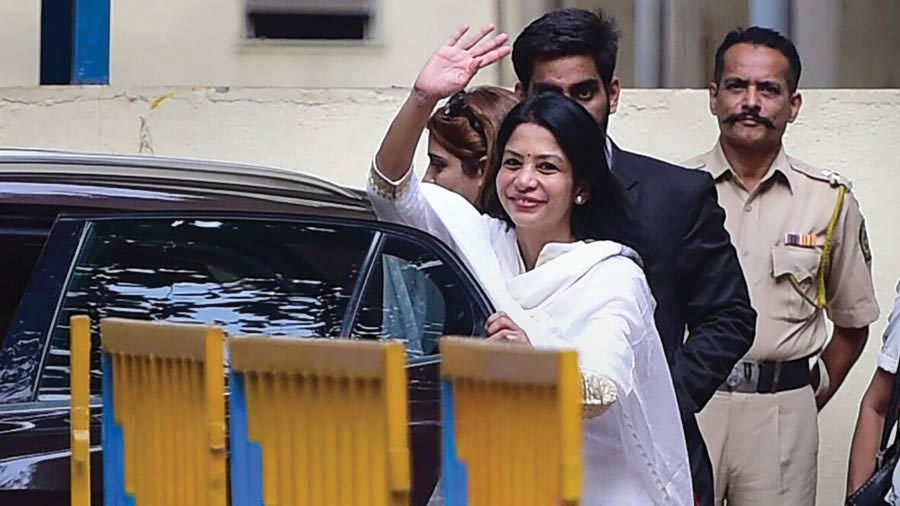 |
| “Nobody’s problems are lesser than someone else’s,” believes Indrani: TT archives |
Lastly, we know that you cannot talk about the Sheena Bora murder case in detail because it is still sub judice. But is there any message that you would like to send to readers about what you believe in and have taken away from your incredible journey?
Everybody goes through challenges. If we sit around and exchange our problems, at the end of the day, we’d still go back to our own problems. Nobody’s problems are lesser than someone else’s. My biggest takeaway is the need to have the courage to remain strong and remain unbroken. We should never give up on the chance that the tables can turn.


0 Response to "It’s not a crime to be ambitious, successful and beautiful: Indrani Mukerjea"
Post a Comment
Disclaimer Note:
The views expressed in the articles published here are solely those of the author and do not necessarily reflect the official policy, position, or perspective of Kalimpong News or KalimNews. Kalimpong News and KalimNews disclaim all liability for the published or posted articles, news, and information and assume no responsibility for the accuracy or validity of the content.
Kalimpong News is a non-profit online news platform managed by KalimNews and operated under the Kalimpong Press Club.
Comment Policy:
We encourage respectful and constructive discussions. Please ensure decency while commenting and register with your email ID to participate.
Note: only a member of this blog may post a comment.